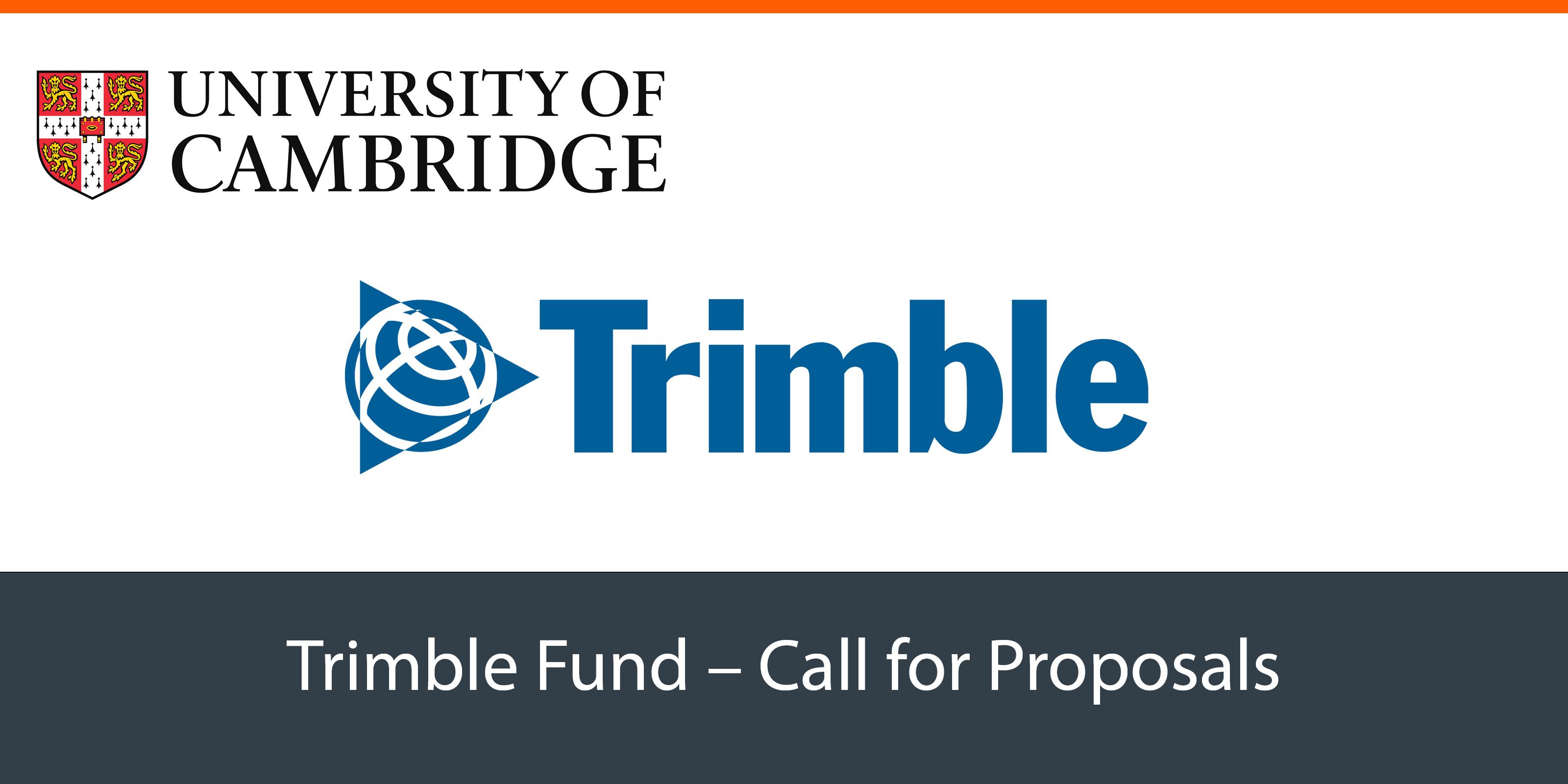
Published on 10 October 2019
The Laing O'Rourke Centre for Construction Engineering and Technology administers the Trimble Fund - a ten year, £500k commitment from Trimble to the University of Cambridge.
The aims of the Fund are specifically to:
- enable world-class academic research that has the potential to achieve a significant impact across geospatial technology for the construction engineering sector;
- develop the students and postdoctoral researchers engaged in the research, so that they are ready to champion construction information technology in academia and industry;
- raise the profile of advanced construction information technology in the construction sector, across academic disciplines and publicly.
Applications are invited from within the University of Cambridge for research funds of up to £50k to be spent during 2019/2020 on areas of research relevant to Trimble Inc.
Areas of interest to Trimble include construction, logistics, operations and sensing. Applications are invited from anyone with PI status. Monies may be used for equipment, consumables, travel and support for staff and students (note that staff employment costs will attract a 30% overhead charge). The fund aims to operate in a lightweight manner. A short report detailing results and outcomes is required at the end of the project. It is hoped that a number of small projects will be funded, and that the monies will leverage funds from other sources whenever possible; support work that could be transformative rather than incremental; and create a ‘honey pot’ that attracts the best students, staff and ideas to this field.
Applications should consist of a short summary of up to 400 words describing the project, and a budget. Applications should be sent to centre.manager@construction.cam.ac.uk by 1 November 2019.
Please note: Intellectual property generated by the project will remain with the University, but Trimble does have some rights: details are contained within Section 5 of the Framework Agreement which is available to download.
The text in this work is licensed under a Creative Commons Attribution 4.0 International License.
